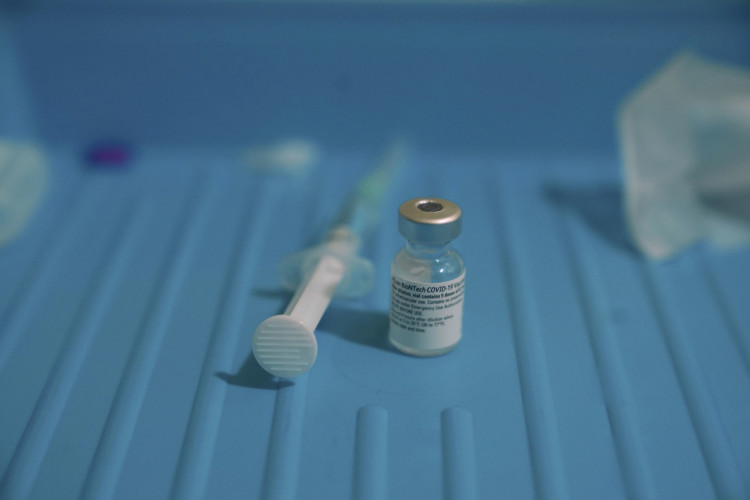Cancer vaccines could be ready by the end of the decade, according to the husband and wife team behind one of the pandemic's most successful COVID vaccines.
Uğur Şahin and Özlem Türeci, co-founders of BioNTech, the German company that collaborated with Pfizer to develop a groundbreaking mRNA COVID vaccine, claimed they had made advances that fueled their hope for cancer vaccines in the coming years.
"Yes, we feel that a cure for cancer, or to changing cancer patients' lives, is in our grasp," Türeci said during an interview on BBC's "Sunday with Laura Kuenssberg."
Within just eight years, the cancer vaccine, which would draw on the scientific advancements made during the creation of the COVID-19 shot, might be readily accessible, according to Şahin.
"We believe that this will happen, definitely, before 2030," he told Kuenssberg.
Using mRNA technology, a vaccine now in research could train the body to recognize and destroy tumors.
An mRNA COVID vaccine works by transporting the genetic instructions for the COVID virus's innocuous spike proteins into the body. Cells take up the instructions and produce the spike protein. These proteins, known as antigens, are then utilized as "wanted posters," instructing the immune system's antibodies and other defenses on what to look for and fight.
Türeci, chief medical officer at BioNTech, said the immune system can be stimulated in the same way to look for and eliminate cancer cells. The vaccine contains genetic instructions for cancer antigens, which are proteins that cover the surfaces of tumor cells, rather than information that detects viruses.
According to The New York Times, BioNTech first concentrated on creating mRNA-based technology for a patient-specific approach to cancer treatment.
Türeci explained to Kuenssberg that their interest in cancer research was sparked by their time as young physicians working in cancer wards and feeling upset at not being able to treat oncology patients.
She said that work served as a "tailwind" for the COVID-19 shot development, which now "gives back" to their cancer research.
Kuenssberg inquired of the couple whether there was "still a chance" that the cancer vaccine would fail.
"I don't think so," Tureci replied. "Everything we have learned about the immune system and about what we achieve with a cancer vaccine shows, in principle, the clear activity - we can induce those killer T-cells, we can direct them."
However, Türeci remained wary about the initiative. "As scientists, we are always hesitant to say we will have a cure for cancer," she said. "We have a number of breakthroughs and we will continue to work on them."






